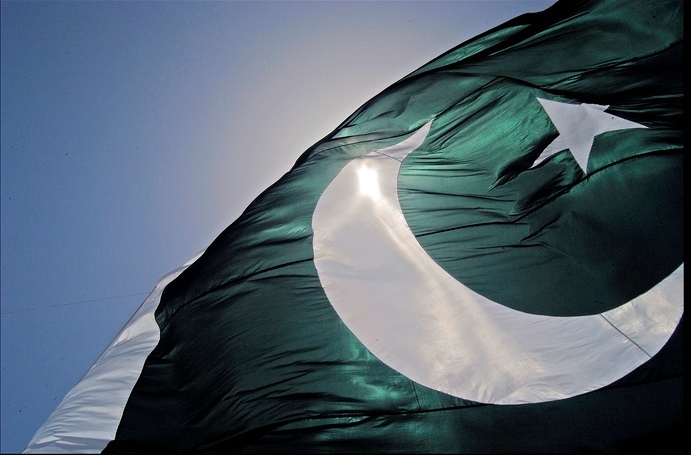Rarely do two international conflicts allow for apt comparison to one another, given geographical, cultural, historical and political differences. Yet the conflicts between Armenia and Azerbaijan over the Nagorno-Karabakh region of Azerbaijan, and that between Pakistan and India over Kashmir, located in South Asia, are one of those conflicts.
The occupation of Kashmir by the Indian Army in 1947 was marked by the Pakistani ambassador to Azerbaijan, Saeed Khan Mohmand, in Baku last week, where he gave a press conference that was headlined “Black Day of Kashmir.” In his remarks, Mohmand invoked the conflict between the Caspian region’s Azerbaijan and its western neighbor Armenia.
"Pakistan repeatedly declared support for the territorial integrity of Azerbaijan and recognized the events of Khojaly as genocide [against Azerbaijanis by Armenia]. And we very much appreciate the support of Azerbaijan for the issue of Kashmir, and we are ready to provide the same support in the Karabakh issue," Mohmand said on October 27, according to Azerbaijan’s Trend news agency.
The Kashmir conflict, which flared up in the years leading up to the retreat of imperial Britain from South Asia in the 1940s, is very much a ‘frozen conflict’ – a term usually reserved for describing hot spots in the post-Soviet world, such as in Georgia’s South Ossetia and Abkhazia regions and Azerbaijan’s Nagorno-Karabakh.
The conflict in Kashmir is a legacy of the British Empire as much as the Nagorno-Karabakh one is that of the Soviet Union. As the USSR was dissolving in the late 1980s, Armenia took advantage of the lax security situation to encroach on neighboring territory within Azerbaijan. A war was fought between the two newly created states of Armenia and Azerbaijan between 1992 and 1994 over Azerbaijan’s Nagorno-Karabakh region, at which time Armenia not only occupied the region but captured seven surrounding districts, which it occupies to this day.
"Nagorno-Karabakh was occupied by Armenia similar to the occupation of Kashmir by Indian troops,” Ambassador Mohmand said. “Azerbaijan has as many as million refugees as a result of the occupation of Nagorno-Karabakh. Millions of people have been forced out from their native lands in Kashmiri region as a result of India's invasion," he noted.
The size of the landmass occupied by Armenia amounts to roughly 20 percent of Azerbaijan’s internationally recognized territory.
In Kashmir, an Indian military crackdown on rebellion has claimed the lives of 70,000, while millions more have been displaced from their homes. Nearly 500,000 soldiers of the Indian army reside in the Muslim-majority territory today.
Most recently and within the last week, the conflicts in both regions took the lives of three people. One conscript in Azerbaijan was killed when the ceasefire line was violated by Armenia, and two women in Pakistan died during firing along the Line of Control, or the de facto border that divides the Kashmir valley between India and Pakistan.
Pakistan is one of Azerbaijan’s strongest supporters in the light of Nagorno-Karabakh conflict, and it is one of the few countries to not recognize Armenia as an independent state, due to the occupation of Nagorno-Karabakh region by Armenia’s armed forces.
The president of Pakistan, Mamnoon Hussain, has repeatedly affirmed Pakistan's full readiness to equip the Azerbaijani military against any threat to its territorial integrity. Following his visit to Baku in January 2016, Hussain revealed that Azerbaijan will purchase JF-17 Thunder fighter-bomber aircraft from Pakistan.
Islamabad was, along with Turkey, a co-sponsor of UN Security Council Resolution number 822, which was passed during the heat of the war between Azerbaijan and Armenia, on April 30, 1993. The resolution was but one of four passed that year, demanding that Armenia fully withdraw from Nagorno-Karabakh region and any surrounding districts of Azerbaijan. Resolution 822 specifically called on Armenia to cease hostilities, and pull out of the Kalbajar district, which has been occupied on April 2.
In a similar spirit to that of Pakistan towards Nagorno-Karabakh conflict, Azerbaijani leadership remains committed to Pakistan’s position on Kashmir conflict. Baku’s stand on the conflict there has been that it ends in peace, via UN Security Council resolution 47, which was passed in 1948 and instructs an ad hoc commission to assist the governments of India and Pakistan with restoring peace and order to the region.
“We very much appreciate the support of Azerbaijan for the issue of Kashmir, and we are ready to provide the same support in the Karabakh issue," Ambassador Mohmand said in Baku.







 Iran's senior military leaders described the drone and missile attack on Israel on April 14 night as “successful".
Iran's senior military leaders described the drone and missile attack on Israel on April 14 night as “successful".
 The number of evacuees from flooded areas in Kazakhstan has reached 97,852 people, including about 32,856 children since March 27.
The number of evacuees from flooded areas in Kazakhstan has reached 97,852 people, including about 32,856 children since March 27.
 Iranian President Ebrahim Raisi warned Israel that it would face a "real and extensive" response if it makes any "mistake" following Tehran’s missi...
Iranian President Ebrahim Raisi warned Israel that it would face a "real and extensive" response if it makes any "mistake" following Tehran’s missi...



